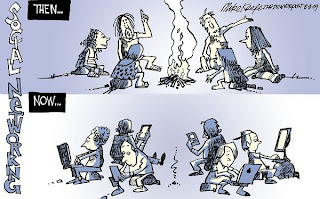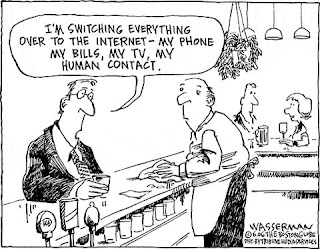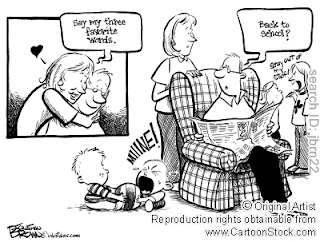Azalea Power
Mr. Soeth
English 3 AP
February 17, 2011
REGUGO Analysis: Government
A. Hitting a child is wrong and a child never, ever, under any circumstances, except literal physical self-defense, should be hit. by Murray A. Straus
Hitting Children is Good by RNW News Desk
B. Articles atatched. (in comments)
C. In the article Hitting a child is wrong, Murray A. Straus states that adults should treat children in ways that do not harm them because there are no circumstances that make hitting an acceptable form of punishment.
In Hitting Children is Good by RNW News Desk, they argue that hitting is essential when raising children because it makes them aware that they have done something wrong.
D. Straus incorporates pathos into his argument with the statement, "Nothing good forces us to act aggressively toward our minor children." When a person is angry, they are more likely to act in violent ways towards others. For example, when a child does something that aggravates a parent, the parent is more likely to have a negative response than a positive response. To a young child, hitting others implies that detrimental physical contact is the only way to have control over others. Parents set the example for their kids of what is right and accepted in society.
Straus utilizes logos in this article with a quote from the book Beating the Devil Out of Them: Corporal Punishment in American Families. It said, "The most basic step in eliminating corporal punishment is for parent educators, psychologists, and pediatricians to make a simple and unambiguous statement..." Straus is saying that instead of physically harming minors, telling them that they did something wrong would be more effective. Speaking to kids calmly after they have done something wrong sends a message to them saying that the parent understands and forgives them.
The author uses pathos in his article when he says, "If you interpret the Bible literally then it says that you can hit your children and that you can continue until the will of the child is broken." Incorporating the Bible into any argument is considered extremely emotional because religion is a topic that everyone has their own opinions about. The Bible has always been open to interpretation, so the author uses it to his advantage by stating that hitting children until their will is broken is acceptable.
"If you are going to hit your child and they are not really convinced by it then you might as well not do it." This is another example of pathos in the article Hitting Children is Good. The author is convinced that when you physically discipline a child, it is crucial to make them regret whatever they did that put them in the situation. He is insinuating that hitting or spanking should be taken seriously if that is what a parent decides on as a punishment.
E. "When people think of not hitting children, however, they often feel afraid and uncertain. What do they fear? Are they just uncomfortable with the unknown or the untried? Do they just doubt what they have not yet experienced?" In this series of rhetorical questions, Straus suggests that there is an uncertainty with what is considered to be the correct way to discipline a child. People have heard the statistics about how hitting young children is good for them, but is also morally incorrect. No one can prove that children become less well behaved if we do not hit them, so with all of the different options available, confusion and speculation will always describe the average parent when it comes to controling their children.
In the article Hitting a Child is Wrong, the author affectively uses repitition. "There is no other social, legal or moral rule that makes us spank our children. Social, legal and moral ties bind us to feed, clothe and shelter our dependent children." He repeats the words social, legal, and moral because they excellently describe the debate on whether or not hitting children is alright. Are people in our society hittin their kids? It isn't legal, but is it also a moral crime?
The author of Hitting Children is Good asks a rhetorical question: "Should the minister be able to make these statements without fear of prosecution?" The minster states that the Bible says it is alright to hit children.But by saying this, however, he is not sure if he will be considered a child abuser. People are entitled to their own opinions and have freedom of speech and religion; he should not be prosecuted for saying what he believes in.
"Children realise after a couple of times that the hitting stops when they start to cry, so they start to simulate this. So you have to keep going until a real change of heart is visible, until the child shows real remorse." This is an example of a hortative sentence because it tells the reader to continue to hit the child until they are certain they have learned their lesson. Parents who choose to hit their children should know when to stop the physical pain they bring their kids.
F. Physically hurting a child is how many parents discipline their kids because it instills fear in them and is considered a way for parents to feel superior. I disagree, however, because a physical attack on a child's body is not an acceptable thing to do. Hitting children might seem to offer people a shortcut, but in reality, it lowers their self esteem and can cause traumatic experiences.
MLA Citation:
"Hitting a child is wrong and a child never, ever, under any circumstances, except literal physical self-defense, should be hit." Murray A. Straus. Web. 2011 Feb 17.
"Hitting Children is Good". RNW News Desk. Web. 2011 Feb 17.














